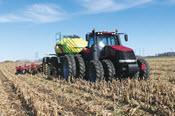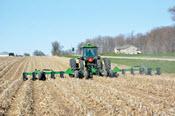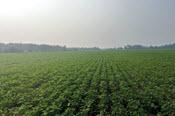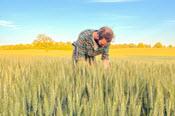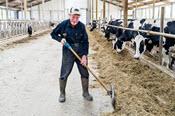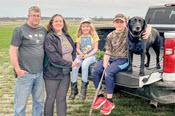Ray Robertson: Canadian Agricultural Hall of Famer
By Emily Croft
Ray Robertson’s passion for growing his local community in Grey County has led to a long career with international impacts.
His leadership and commitment to agriculture has been recognized, as Ray was inducted into the Ontario Agricultural Hall of Fame in June, and will be celebrated at the national level at the Canadian Agricultural Hall of Fame induction ceremony on Nov. 4 in Charlottetown, P.E.I.





